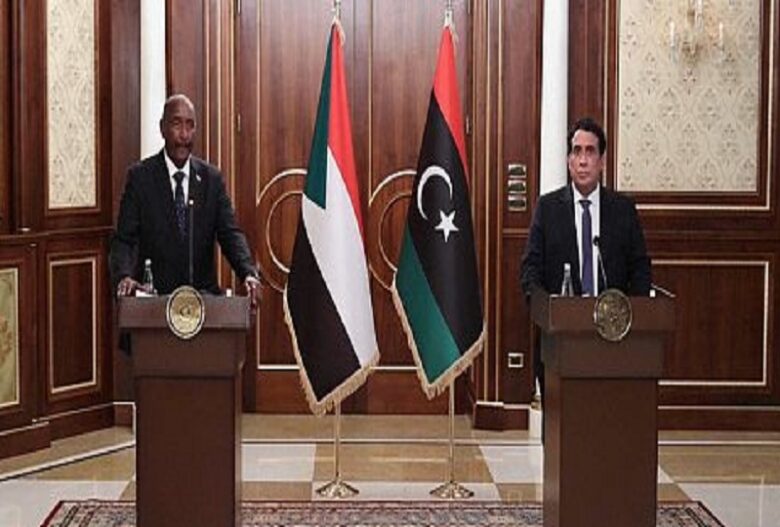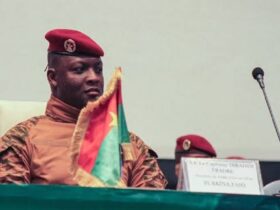Chinese President Xi Jinping and Teodoro Obiang Nguema Mbasogo, President of the Republic of Equatorial Guinea, convened in Beijing on Tuesday, announcing the upgrade of bilateral relations to a comprehensive strategic partnership of coordination.
This move signifies a new era for both nations to align development strategies, enhance cooperation, and foster mutual prosperity, potentially serving as a blueprint for increased collaboration between China and other West African countries, analysts noted.
In their discussions, President Xi emphasised the strong friendship and partnership between China and Equatorial Guinea, highlighting the deep political trust shared between the two nations, as reported by Xinhua News Agency.
China pledges strong support for Equatorial Guinea’s sovereignty and independence, rejecting foreign intervention and encouraging the nation to pursue its own developmental trajectory independently, President Xi stated.
Xi emphasised China’s readiness to deepen bilateral exchanges and share expertise in areas like reform, development, and poverty reduction, aiming to invigorate the enduring friendship between the two countries.
Following their discussions, Xi and Obiang oversaw the signing of various cooperation agreements spanning investment, economic expansion, digital innovation, environmental sustainability, and the execution of the Global Development Initiative.
The elevation of ties to a comprehensive strategic partnership of cooperation signifies a new phase in bilateral relations, according to Song Wei, a professor at the School of International Relations at Beijing Foreign Studies University.
By categorising the relationship as comprehensive and strategic, China and Equatorial Guinea can align their development strategies, including China’s Belt and Road Initiative (BRI) with Equatorial Guinea’s programs, to address the developmental needs of both nations more effectively.
Additionally, the partnership will facilitate greater coordination on core interests, shared concerns, and important international issues between the two countries.
In an interview with Xinhua News Agency published on Friday, President Obiang highlighted the steady advancement of major cooperation projects between China and Equatorial Guinea over the past 54 years.
He mentioned infrastructure construction and technical assistance as key areas of cooperation, citing projects like the port of Bata on the Gulf of Guinea and the Djibloho Hydropower Plant, which have been built or aided by Chinese enterprises and have significantly improved the lives of local people.
President Obiang also emphasized the positive outcomes achieved through cooperation within the framework of the Forum on China-Africa Cooperation and the Belt and Road Initiative.
He highlighted cooperation in fields such as health, agriculture, commerce, and technology, which have greatly contributed to Equatorial Guinea’s economic and social development.
Song Wei, a professor at Beijing Foreign Studies University, acknowledged China’s role in enhancing Equatorial Guinea’s infrastructure, intra-connectivity, and industrialization, given the country’s abundant natural resources.
“Bilateral cooperation will not only bring about immediate benefits to the African country but also boost the country’s development capability, diversifying its economic structure and strengthening its economic security,” Song stated.
Equatorial Guinea’s economy heavily relies on exports of resources such as oil and gas, which are predominantly operated by Western companies.
While timber is the second pillar of its economy, traditional sectors like agriculture and fisheries have diminished in significance due to the expansion of oil exploration and export.
The government aims to rejuvenate these sectors while also advancing industrialisation as outlined in an investment guidebook jointly released by the Chinese Academy of International Trade and Economic Cooperation.
Situated in the Gulf of Guinea, Equatorial Guinea holds a strategic position in West Africa.
Given the region’s occasional unrest and escalating international power dynamics, Professor Song believes that “the partnership between China and Equatorial Guinea will inspire closer relations between China and other countries in the Gulf of Guinea and West Africa.”
According to media reports, the US has withdrawn troops from Chad and Niger in West Africa.
The Associated Press expressed concern, suggesting that these reversals may signal a decline in US influence in Africa, potentially paving the way for increased engagement from Russia and China.
Analysts emphasise that China’s expanding cooperation with African nations and other Global South countries is rooted in a mutual pursuit of development and prosperity.
They argue that the US should recognize that most countries worldwide are not interested in aligning with one side or forming confrontational blocs.
Critics caution against demonising China’s collaborations with other nations or exaggerating the so-called “China threat”.
They argue that such tactics will not aid the US in building partnerships or enhancing its influence globally.
YOU MAY ALSO READ: OpenAI launches safety committee as It commences training new model









Got a Question?
Find us on Socials or Contact us and we’ll get back to you as soon as possible.